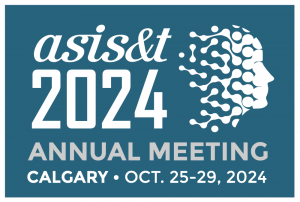Annual Meeting ’24 Call for Proposals
Putting People First: Responsibility, Reciprocity and Care in Information Research and Practice
Information research and practice are embedded in diverse settings, from physical library, everyday life, and community spaces, to digital entertainment and social media, to online search systems. These real-world and virtual spaces consist of complex, interdependent relationships between people, information objects, and technologies that are mediated by local norms and practices and broader economic and political systems. As information scientists and practitioners, we are perpetually mindful of the people in the information-technology-people triad, even in the face of the dramatic rise of AI systems. We consider the ways in which human-designed and algorithmic systems represent individuals and communities, sometimes reinforcing and perpetuating stigma and discrimination. We see how biases embedded in social media, information retrieval, classification, and decision-making systems influence the flow of information in society. We understand that complex societal challenges (e.g., mis/disinformation, access to information, technological sustainability) involve but also transcend individual actions and dispositions. At the same time, empowering people with information, metaliteracy, and tools is vital for engendering systemic change, fostering creativity and innovation, and improving the quality of interactions with information systems. As the premier international conference in the field, the ASIS&T Annual Meeting is a forum to draw attention to and share the people-centred aspects of information research, education, and practice. By putting people first, we make visible responsibility, reciprocity, and care in what we do and how we do it. We seek submissions that demonstrate how we put people first. Specifically, how do we demonstrate responsibility, reflexivity, and care in the creation and evaluation of information systems, programs, and services? How do we cultivate and maintain community and research partnerships? Lastly, how do our theoretical frameworks, methodologies, and learning and teachhing practices, and day-to-day practices reflect people-first considerations?
Keep checking back as more information becomes available.
